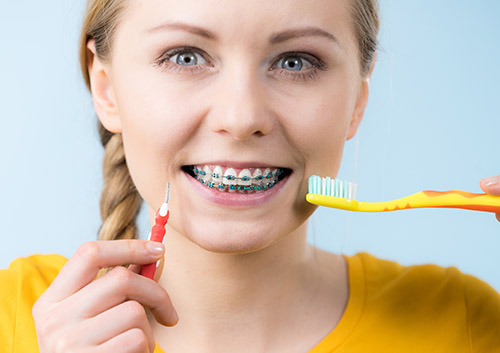Your Hard-Working Teeth
March 4th, 2026

Healthy teeth make you happy to share your smile with the world. But there’s more to your smile than its beauty! There’s a lot of hard work going on, too.
Teeth Are Designed for Efficient Eating
Because humans are omnivores, we can eat both meat and plants. That’s why our teeth have different shapes—they’re meant to help us process different types of food.
- Incisors, our front teeth, have sharpish edges to help cut through meats and other firm foods when we bite.
- Canines, the pointed teeth, help tear food into bite-size portions.
- Premolars are flat topped teeth with two cusps, raised points which help us grind food.
- Molars are the flat-topped teeth in the rear of the mouth. They have four cusps to grind and crush food into a paste-like consistency.
So: Incisors and canines bite and tear food into smaller pieces, which molars and premolars then crush and grind into a paste. Bite, tear, crush, grind—why all this food aggression? Because that’s the key to healthy digestion.
Successful digestion begins with chewing. Chewing:
- Starts the process of breaking food down into digestible particles.
- Increases saliva production. Saliva binds food particles so that we can swallow easily.
- Expands the surface area of food particles, which allows the digestive system to extract nutrients more efficiently.
When biting causes you pain, it can be hard to chew food. Swallowing becomes difficult when food particles are too large, and digestion becomes uncomfortable.
Bite pain can occur when there’s a deep cavity or an injured tooth, but it can also be caused when the teeth and jaws don’t fit together the way that they should. This misalignment is called a malocclusion, or bad bite. And while a malocclusion often makes eating more difficult, it can have further damaging effects as well.
Teeth Are Designed to Be Good Partners
While eating is probably the first thing that comes to mind when we think about dental duties, our teeth also work in coordination with other parts of our bodies. A malocclusion can interfere with these normally smooth interactions, affecting:
- Tooth and Jaw Health
Biting, chewing, and clenching put hundreds of pounds of pressure on our teeth and jaws. A misaligned bite misapplies this pressure, which can lead to damaged and unevenly worn teeth, tooth grinding, headaches, jaw pain, and other problems.
- Speech
Our teeth work with our tongues and lips to form many of the phonetic sounds which make up speech. Try saying the word “teeth,” and see how your tongue and teeth work together! Misaligned teeth and jaws can affect speech development in children and pronunciation in children and adults.
- Face Shape
Our teeth and jaws help give shape to our faces. Alignment problems can affect facial symmetry and self-confidence.
You Can Help Your Teeth Work Their Best
Daily brushing and flossing, eating a healthy diet, and regular visits to your dentist for exams and cleanings help your teeth perform their many daily duties. But if bite problems are causing troubles with eating, tooth or jaw pain, difficulty speaking, or self-consciousness, it’s time to team up with your orthodontist.
And just like your everyday dental care, orthodontic treatment works best with your active participation.
- Make sure your teeth are their cleanest with careful brushing and flossing. You may need to brush and floss more often while you’re in treatment.
- If you wear braces, eat a braces-friendly diet.
- Wear aligners, bands, or appliances for the hours recommended each day.
- Keep up with your orthodontic visits to keep your treatment on schedule.
Talk to your orthodontist to learn more about how to help your teeth work their best for you—and be ready to share that beautiful, hard-working smile!




